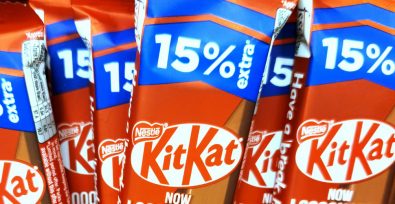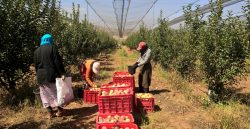The US Court of Appeals has rejected a proposed class action brought by eight Malian citizens against seven chocolate companies, including Nestle, Hershey, and Mondelēz.
The suit, filed in 2021, claimed the plaintiffs were trafficked from Mali as children and forced to work on cocoa plantations in Côte d’Ivoire. Furthermore, they alleged that the seven companies formed a “venture” to benefit from the cheap, forced child labor.
“we don’t have anything to do with what’s going on there”
The plaintiffs described living in poor conditions and facing constant threats of starvation if they refused to work. Moreover, they said they were recruited under false pretenses by men they did not know.
The lawyer who brought the civil action, Terence Collingsworth said in 2021:
“These companies are running a war on two fronts. They are telling the public; we’re working with cocoa farmers, we are giving them schooling and money, we’ve got this under control.” … “Then they stand up in court and say we’re just buying chocolate, we don’t have anything to do with what’s going on there. In their most recent filing, they say they are no different from a consumer of a chocolate bar.”
In a unanimous 3–0 decision, the court ruled that the plaintiffs had not demonstrated a direct link between their forced labor and the companies they sued. As reported by USA Today, Circuit Judge Justin Walker wrote:
“Circuit Judge Justin Walker, however, said the plaintiffs alleged at most they worked in areas that supplied cocoa to the defendants, which buy an estimated 70% of Ivorian cocoa, rather than specific farms that supplied the cocoa.”
“Is there a ‘possibility’ that at least some of the importers sourced cocoa from those farms? Yes,” Walker wrote. “But is it ‘plausible’? Not on this complaint.”
Sweet treats, bitter truth
Child labor and forced child labor have long tainted cocoa production in Côte d’Ivoire and Ghana. Together, the countries are responsible for 60% of the world’s cocoa. In 2001, major chocolate companies promised to eliminate the worst forms of child labor from their supply chains by 2020.
Yet, progress has been slow and inconsistent. Mondelēz has only participated in the Chocolate Scorecard once in the past three years—leaving major gaps in transparency. Starbucks, while making some strides, still scored poorly in 2024 when it came to paying farmers a living wage and preventing child and forced labor.
Terry Collingsworth, a lawyer representing the plaintiffs says:
“The court rewarded the chocolate multinational defendants … for concealing their cocoa supply chains, such that former child slaves are unable to link a specific company to the Cote d’Ivoire (Ivory Coast) farms where they were enslaved,”
Join the fight
This isn’t the only case of corporate giants avoiding accountability. In March 2024, the same court dismissed a case that sought to hold Apple, Alphabet (Google’s parent company), Dell, Microsoft, and Tesla responsible for child labor in their cobalt supply chains.
Decades of promises are not enough. Together, we have the power to remove forced child labor from the chocolate we eat.
Join our campaign calling on chocolate companies to clean up their supply chains and help end child exploitation.







Freedom United is interested in hearing from our community and welcomes relevant, informed comments, advice, and insights that advance the conversation around our campaigns and advocacy. We value inclusivity and respect within our community. To be approved, your comments should be civil.
Appalling ! They need to be forced to be accountable. So brave of these grown up child slaves to try and take on these giants, terrible that these corporations have escaped responsibility based on loopholes and no doubt expensive legal representation. Anyone aiding these companies to avoid repercussions should be ashamed, not to mention the companies themselves.
Let’s hope something changes.